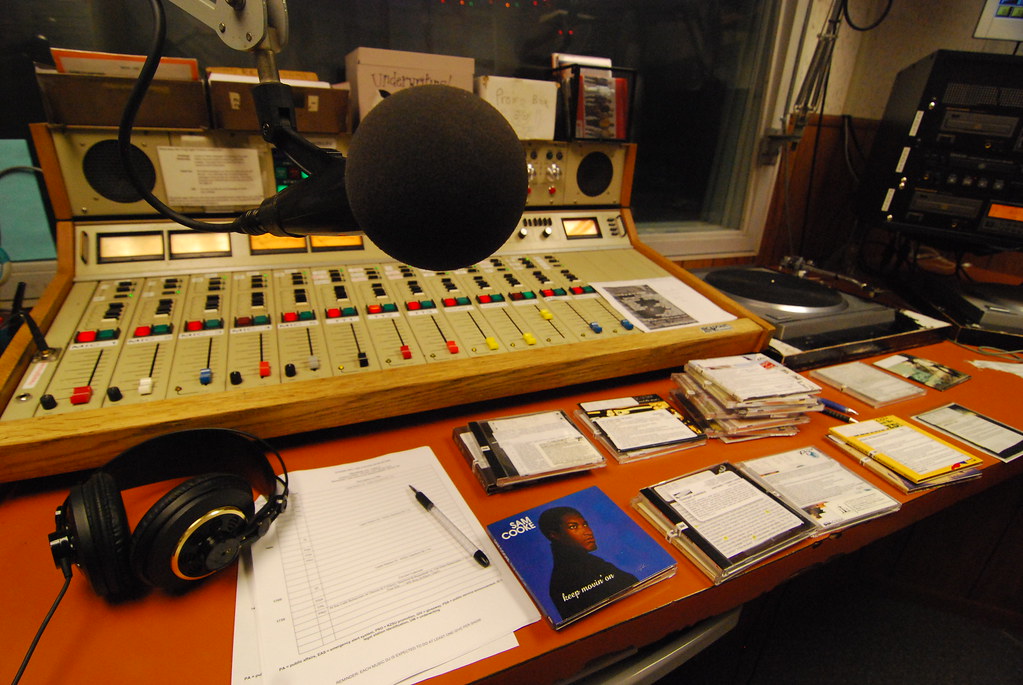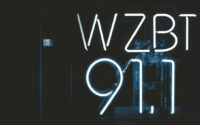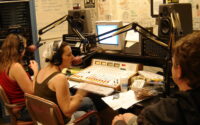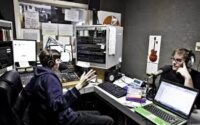WZBT & the Evolution of College Radio
By Isaias Martinez on October 26th, 2021
College Radio has historically been known to be the starting point for the young discovery of music and other public and free speech opinions. However, ever-growing media platforms have diminished the impacts that college radio has started on, but is that necessarily a bad thing? College radio can still be an important part of media but will shift to another purpose to keep up with the current popular mediascape formats. A concern that arises with local college radio station WZBT in Gettysburg.
Potentials for College Radio

Kevin Lozano from Pitchfork describes the origins of college radio as rooted in the discovery of local music and free speech which still hold true in current radio (Lozano, 2017). With this in mind, it is correct to say that locality of college radio are drivers for the longevity of college radio which R. Wilfred Tremblay acknowledges the potentials for (Tremblay, 2003). This is because these are fields of sport and locality on which college radio heavily relies and are not ones with much competition. Not only are music and sports crucial but so are local opinions and expression of free speech. Many unheard voices are projected through college radio which can also be potential for longevity with the evolving college demographics. Many college spaces are becoming increasingly diverse and a place to practice free speech in a naturally oppressive environment which can be appealing to the evolving college community if broadcasted on radio. Gettysburg College is no stranger to this change with radio programming like Voice of a Generation which was started and maintained by a group of young women of color on campus from 2017-2021. While all of this signals to growth there are still challenges that arise with the usage of radio for media communication.
Downsides and Obstacles
Right now, the biggest obstacle for radio is online media and platforms which come along with the limitations of funding in radio support. Radio, as Lozano describes it, is an expensive mediascape that is not being funded to the degree it once was. This, unfortunately, is understandable, many costs come with the radio operation which ultimately includes radio radius, equipment, and licensing. Now, many of these costs can be minimized and centralized to a computer with the introduction of online radio, streaming services, and the creation of podcasts. All of these costs can be minimized while expanding the reach of the material radio provides. With the internet as a resource, all material can be accessible to anyone with an internet connection, which is everyone nowadays.
WZBT and Local College Radio
In the end, the original notions of college radio based on locality are still important driving factors for the future of college radio as a whole. This is amplified when thinking of the shift college radio can make when one considers the ever-changing college demographical environment. However, competing affordable and accessible online mediascapes challenge the vitality of college media. When looking at WZBT, the Gettysburg College radio station, the changes, and transition are clear. On their main page, a feature for the online streaming of their programs is advertised which indicates their change to the internet for a wider broadcast. Funding also seems to be an issue as they display Underwriting which is a way to collect funds for the usage of the station. Moreover, their Wikipedia page shows how wide their FM radio broadcasting had expanded indicating a need for funds to upkeep this local reach of ~35 miles. A good example of the impact of the changing college demographic would be Voice of a Generation which ran on WZBT. A program that was run by women of color who talked about issues on campus affecting those from marginalized communities. This program is unfortunately no longer running as the creators have graduated and a replacement has not been found. All of this to say that college radio is diminishing, and its revitalization is possible, but with competing effects is that possible? Can WZBT continue to matter with all of the social, economic, and technological advances and obstacles going on?
Sources
Gettysburg College. (2021, April 2). Home. WZBT 91.1 FM. Retrieved October 26, 2021.
Gettysburg College. (2021, April 2). Voice of a Generation. WZBT 91.1 FM.
Lozano, Kevin. (2017, February 8). Does College Radio Even Matter Anymore? Pitchfork. Online
Tabaczynnski, Toby. (2019, March 19). Why do People Think That No one Listens to Radio Anymore? WDET NPR. Online
Tremblay, R. W. (2003). A Delphi Study on the Future of College Radio. Journal of Radio Studies, 10(2), 170–185.
Edits
This Blog Post was edited on the 8th of December 2021. The primary edits include the restructuring of the introductory paragraph to properly introduce the argument and flow. Another edit was focused on presenting an example of Gettysburg College radio programming in the introduction.


